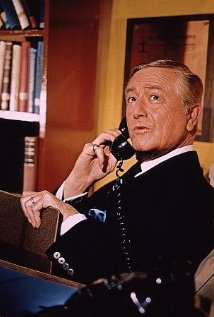What Do We Need Doctors For?
One of the first questions I asked on this blog was, Are Doctors Necessary? In 2010, I wondered if the Internet and other open resources could replace physicians’ advice. Say you’re feeling OK and not obviously sick, you might prefer to just read and draw upon the wisdom of the crowds, Google and books. If you have a pesky symptom, you might just look it up, or pretend it’s not there, and see if it goes away, without seeking a doctor’s input.

But if you’re sick – if you’re a patient, and not a consumer, in this blog’s lingo – well, then, of course you need a doctor if you want to get well. Physicians are necessary, still, especially if you’ve got a serious illness, like colon cancer, malaria, catatonic depression, rheumatoid arthritis or Type I diabetes, to name a few doctor’s attention-worthy conditions. Even for someone like me, who’s gone through med school, residency, fellowship and spent years giving medical care to other people, having a thoughtful physician – someone whose experience and intelligence I trust – is indispensible.
My doctors help me sort through the literature, if I choose to read it (I don’t always) and figure out what makes sense for me to live without pain and as fully as possible. I value their work immeasurably. But, as much as I have been helped by nurses, physical therapists, pharmacists and peer patients, the doctor’s opinion matters most. Admittedly, I’m lucky in this. Over the years, I’ve accrued a team of excellent physicians whom I trust. That’s not a common scenario now, which is part of why this question matters so much.
The updated part of the question, now, is whether nurse practitioners (NPs), straight RNs, physician assistants (PAs), pharmacists, social workers and others including, yes, peer patients, should take up much – or even most, of doctors’ tasks. As outlined in a recent editorial, these non-physician health care workers can be paid less and may do a better job at certain chores that, historically, have been carried out by MDs. They can order scans and contact patients about the results, fill out forms for home physical therapy, measure your blood pressure and give injections, like flu shots.
At one level, assigning minor and not-so-minor tasks to other kinds of health care providers sounds great. It’s a partial, 2-for-1 solution, because it relieves the physician shortage and, simultaneously, lowers health care costs. It makes perfect sense, to a point, for efficiency. There are, legitimately, some tasks that nurses are better-trained to do, such as giving medications. Pharmacists are more likely to pick up on dangerous drug combinations than busy pediatricians, because that’s the focus of their work and training. Peer patients are valuable too. Etc.
But if doctors are just thinking about your “case” or doing complex procedures, and not being the ones to call you back, or putting in intravenous catheters, or even just sitting and taking a thorough history – they’ll know you less well. And if they spend less time with you, a patient with a serious illness, they – according to the laws of human nature, and my observations on rounds on hospital wards over many years – will not care so much about the outcome of your case. When and if a doctor spends time with a patient, that builds trust, concern, and – possibly, better outcomes.
Reality dictates that we have to protect doctors’ time so they can read, sleep, and spend at least a few minutes each day with the people they care about outside of the workplace, and take care of themselves. If we don’t unload some of the tasks to other health care workers, we’d have to assign fewer patients to each physician. That would exacerbate the shortage…
No simple answer –
ES
Excellent overview of such a complicated issue, Dr. S. This reminds me of the controversy surrounding the registration of midwives here in the Canadian province of British Columbia. Many doctors were outraged at the “dangers” of allowing this ragtag bunch of hippies who had not gone to medical school to deliver the babies of their patients. Fast forward to the 21st century: midwifery is now a fully-funded service of our health care system (as are the services of doulas – can you believe it?) complete with accredited training programs and certification/continuing education requirements. This evolution makes for better doctoring in the long run.
I appreciate your perspective on this, Carolyn. Yes, there are a lot of things doctors do that others might, instead and sometimes better.
Well healthcare is broad enough to allow everyone who wants to practice like NPs, RNs, PAs etc. to do their thing. I think they may offset the need for a doctor somewhat and perhaps ideally the system would sort itself out so doctors can have a lesser workload. I hope you realize how many ‘ifs’ there are here.
http://www.ok.gov/osboe/faqs.html